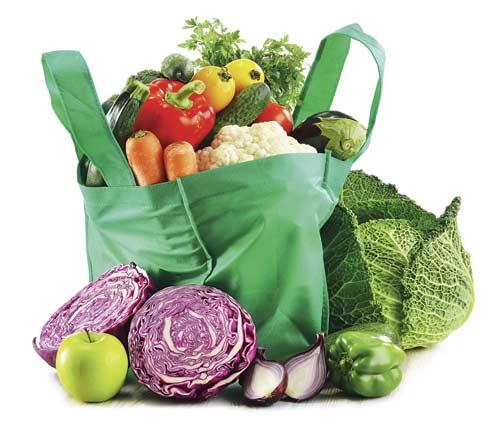There's no sure-shot solution to prevent cancer, but making a few changes in one's diet can go a long way to help boost immunity against this dreaded disease. On World Cancer Day, The GUIDE outlines good and bad foods that might influence this risk. Start now, and live a cancer-free life

Seeds and nuts (or their oils)
Chia, flax, pumpkin, walnuts
Helps fight: Prostate and skin cancer
> A good source of cancer-fighting nutrients Vitamin B12, Vitamin D and minerals like Selenium and Zinc.
> Polyphenols in nuts and seeds are believed to prevent your body from free radical damage and protect your skin.
ADVERTISEMENT
Brightly Coloured Fruits and Vegetables
Cherries, berries, beetroot, carrots, tomatoes
Helps fight: Skin and Prostate cancer (tomatoes), breast cancer, lung cancer
> Contain highest amount of anti-oxidants, and are a rich source of Vitamin A and E, and beta-carotene, which protects the skin against damage.
> Lycopene in tomatoes is believed to reduce the risk of prostate cancer, and also protects lung, mouth, and throat cancer, writes Patrick Holford in Good Medicine.

Cruciferous vegetables
Broccoli, Brussels sprouts, cabbage, cauliflower, kale, radish, mustard
Helps fight: Prostate cancer
> A good source of cancer-fighting nutrients Vitamin B12, Vitamin D and minerals like Selenium and Zinc.
> Di-indolylmethane (DIM) converts excess active estrogen into anti-proliferative and protective estrogen that helps eliminate damaged and cancerous cells, writes Patrick Holford in Good Medicine.
Spices: Turmeric and Garlic
Helps fight: Prostate cancer, skin cancer
> According to Cancer Research, UK, curcumin in turmeric is useful to inhibit cancer growth, and disarms the body of several carcinogens.
> Turmeric also improves the detoxifying potential of the liver.
> Boosts immune system.
> Garlic protects against tumour formation and inhibits the growth of established tumours, writes Holford.
Oily Fish
Salmon, Mackerel, Herring, Kippers and Sardines Helps fight: Mainly colorectal cancer, prostate cancer
> A rich source of Omega 3 fatty acids that help reduce the risk of cancer.
> Contains large amounts of Vitamin B12, Selenium, Zinc and Vitamin D all of which have anti-cancer properties.
Beans
Soya beans (fermented soya products like miso and tempeh), chickpeas, lentils Helps fight: Colorectal, breast, prostate cancer
> Research shows that phytoestrogens in beans may help block estrogen receptors from powerful hormone-disrupting chemicals that mimic estrogen such as dioxins and some pesticides. Patrick Holford in Good Medicine recommends, about 15,000mcg (15mg) of phytoestrogens a day.
Whole grains
Oats, brown rice, barley, wholegrain bread and pasta, millet Helps fight: Breast cancer, colorectal cancer, prostate cancer
> A World Cancer Research Fund study found strong evidence that foods containing dietary fibre decrease the risk of bowel cancer.
> Fibre in whole grains helps in bowel movements, thus reducing the contact time between the bowel and carcinogenic elements in it, if any.
Dairy Products
Milk, cheese (excluding yoghurt) Avoid in case of: Breast cancer, prostate cancer, skin cancer
> Contains inflammatory saturated fats that promote growth in cancer cells.
> The Insulin-like Growth Hormone (IGF-I) in dairy products also helps cancer cells to grow.
Meat
Processed meats (sausages, ham, bacon, smoked foods), red meat (beef, pork, lamb) Avoid in case of: Breast, prostate cancer
> Inflammatory saturated fats in meat helps cancer cells to grow.
> Avoid burned and processed meat, grilled, fried or barbecued, as charred food are reach in carcinogenic elements.
> Limit intake of red meat to 300g a week.
Smoking and alcohol
Avoid in case of: All cancers and otherwise
> Suppresses the immune system and robs the body of Vitamin B Complex.
> Eating too much sugar or refined carbohydrates can also promote high insulin levels, which stimulate the growth of cancerous cells.
Sugar and refined carbohydrates
White bread, white pasta and rice, cakes, biscuits, sweets and any item with added sugar Avoid in case of: Breast cancer
> Eating too much sugar or refined carbohydrates promotes high insulin levels, which stimulate the growth of cancerous cells.
> Sugar suppresses the immune system and robs the body of Vitamin B Complex.
 Subscribe today by clicking the link and stay updated with the latest news!" Click here!
Subscribe today by clicking the link and stay updated with the latest news!" Click here!






